Living with a chronic disease like COPD requires making a variety of changes and lifestyle adjustments. You have to pay extra attention to your overall health in order to keep your lungs and body in the best shape possible.
Of all the healthy habits you can pursue, eating a nutritious, wholesome diet is one of the most important and beneficial. It can also be one of the most challenging to commit to, because it requires you to give up some of the junk food and unhealthy snacks you enjoy.
Eating unhealthy foods isn't just bad for your metabolism or waistline, but can also increase your risk for a variety of conditions including diabetes and heart disease. If you have COPD, eating certain foods can even put strain on your lungs and make it more difficult to breathe.
That's why, in this article, we're going to help you get a jump start on a healthier diet by telling you about eleven foods you should avoid when you have COPD. We'll show you what foods to cut down on, what foods to cut out completely, and what foods you can eat as a healthy alternative to junk in your diet.
So, if you want to improve your diet and learn how to avoid foods that can exacerbate your COPD, this article is for you. You'll learn how your diet can affect your COPD symptoms, how to avoid hidden sources of sugar and salt, and how to start putting together a healthy COPD diet plan that works for you.
{{cta('b59df0c1-c4de-47a8-8e1c-0d33d4b414aa','justifycenter')}}
The Foods You Eat Can Affect Your COPD
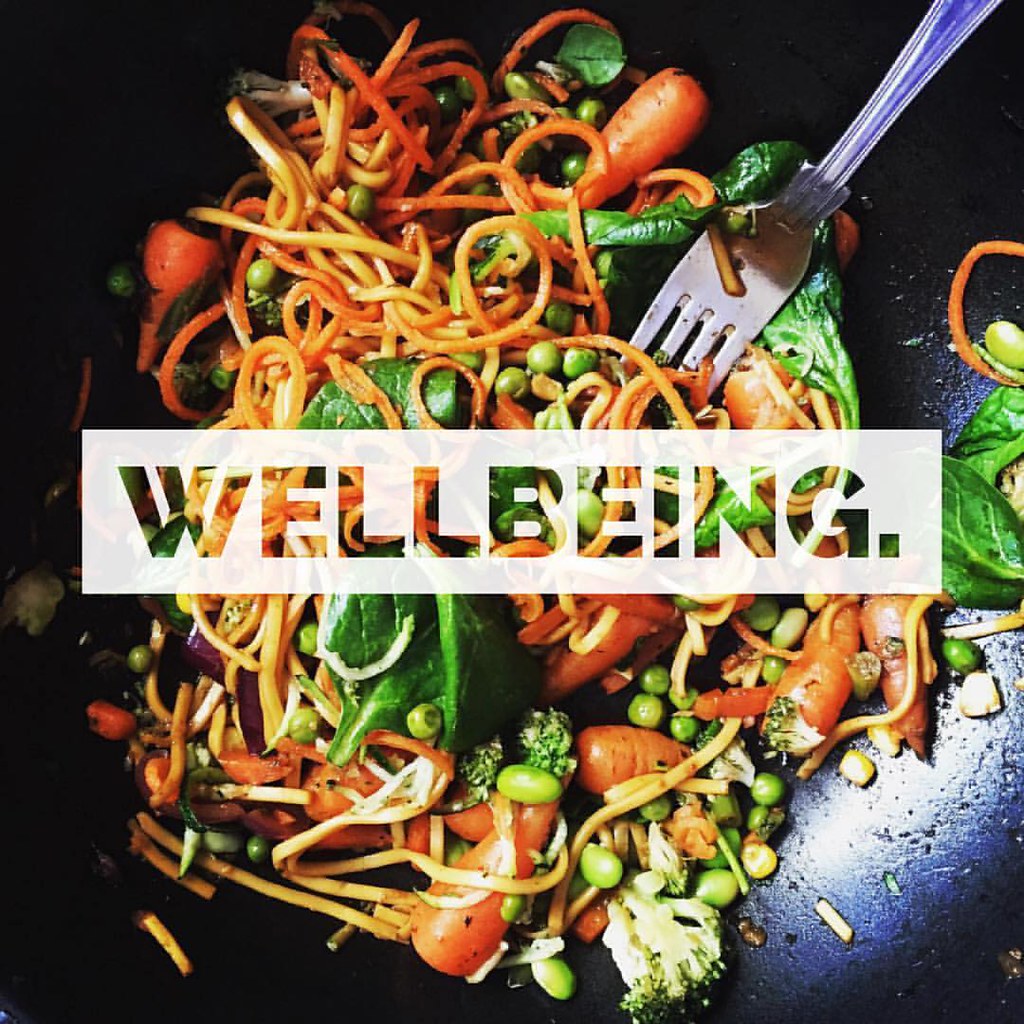 |
| Image courtesy of FFCU. |
Many people with COPD and other lung diseases don't realize how much their eating habits can affect their disease and its symptoms. But the truth is that there are certain nutrients, and certain types of foods, that can have a noticeable affect on your lung function, energy levels, and how you feel.
When you have COPD, your lungs have to work extra hard to get enough oxygen to all the parts of your body that need it. Certain foods can actually make your lungs have to work even harder, which can make symptoms like breathlessness and fatigue significantly worse.
COPD symptoms are also affected by a variety of foods that can cause indigestion, bloating, or excess mucus production. Certain foods commonly cause gas, bloating, or heartburn, all of which can cause chest discomfort and make it more difficult to breathe. Increased mucus production can obstruct and narrow airways, which worsens COPD symptoms.
If you have COPD, it's important to understand the dietary factors that can exacerbate existing symptoms and affect your lungs' ability to work efficiently. If you know what foods to avoid, you can reduce your exposure to things that can hurt your lungs and start improving your diet for better overall health.
What You Need to Know About Carbohydrates and COPD
Carbohydrates are one of the most important nutrients to pay attention to if you have a lung disease like COPD. The relationship between carbohydrates and lung function is complicated, but it's vital for every COPD patient to be aware of.
First, you have to understand that there is a direct relationship between the foods we eat and gas exchange in the lungs. Gas exchange is, of course, the lung's main purpose: we exhale carbon dioxide gas and inhale oxygen gas.

Carbon dioxide gas is a waste product that comes from our bodies' metabolic processes, like breaking down food. One of the major purposes of our lungs is to get rid of this carbon dioxide waste by expelling it through our breath when we exhale.
The way our bodies work, carbon dioxide waste is a necessary result of turning food into energy that our muscles and organs can use. Everything we eat gets broken down into both nutrients and waste products, and the carbon dioxide waste always has to get processed by the lungs.
However, researchers have found that some foods create less carbon dioxide waste than others when your body breaks them down. This means that these foods create less work for the lungs, because they produce a smaller load of carbon dioxide for them to process.
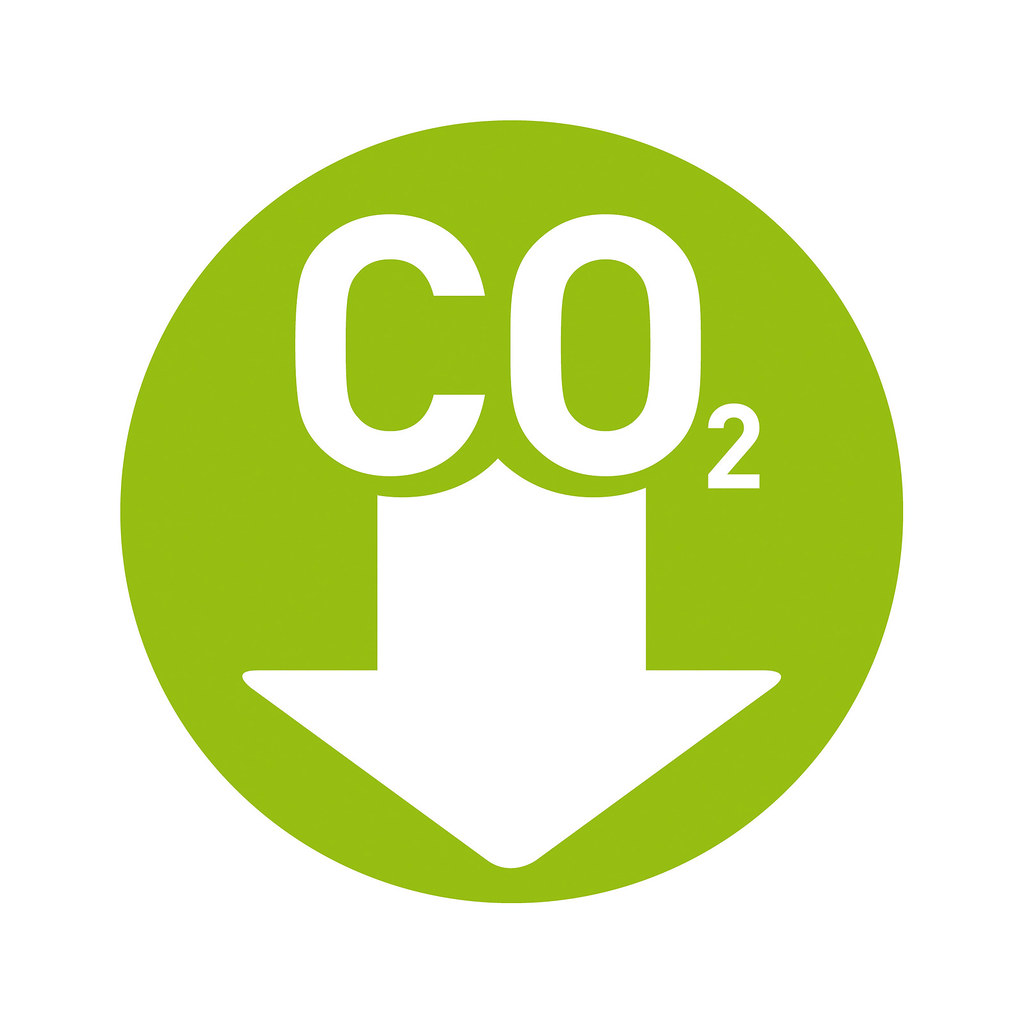 |
| . Image courtesy of herlitz pbs. |
Research also shows that eating foods with a heavier carbon dioxide load can actually make your COPD worse. This happens because the lungs have to work harder and use more energy to get rid of all that extra carbon dioxide.
If you have strong, healthy lungs, having excess carbon dioxide waste to get rid of is not usually a problem. However, if you suffer from COPD or another respiratory condition, it can have detrimental effects.
If you have COPD, excess carbon dioxide waste results in reduced lung function, which can cause a variety of COPD symptoms to get worse. It can make you feel extra breathlessness, chest discomfort, fatigue, and even increase your risk for exacerbations.
So, which foods create the most carbon dioxide, and which foods produce the least? According to researchers, the answer lies in the three main food groups: carbohydrates, fats, and proteins.
{{cta('fa8abc2a-1e88-4fa3-82fd-1cb5b9ed43b2','justifycenter')}}
Carbohydrates Create the Most Carbon Dioxide Waste

Researcher has found that, of all the major food groups, carbohydrates produce the most carbon dioxide waste by far. Because of this, many doctors recommend that people with COPD avoid diets high in carbs and eat more fat and protein instead.
This aspect of a healthy COPD diet is not negligible, and may be more important than many people understand. A number of researchers have studied the direct effects of carbohydrates on people with COPD, and they've found that their effects on lung function are both significant and measurable.
According to one study, COPD patients who had a single high-carb drink had increased symptoms and reduced lung function afterward. Compared to patients that drank a high-fat drink containing the same number of calories, COPD patients who had the high-carb drink required more oxygen, couldn't walk as far, and had extra difficulty breathing during activity.
This suggests that the carbohydrate and fat content of the food you eat can have a huge effect on your lungs, COPD symptoms, and your ability to exercise. If you want to stay healthy and feel your best, you should always be mindful of the nutrient content of the meals you eat and limit the amount of high-carb foods you eat.
Damaged lungs often have enough difficulty meeting the body's basic respiration needs under even the most ideal circumstances. By avoiding carbohydrates and substituting healthy fats and protein instead, you can significantly reduce the amount of strain you put on your lungs and make it easier to breathe with COPD.
Fats and Proteins Have the Lowest Carbon Dioxide Load

Because of the detrimental effects of carbohydrates on lung function, research supports a COPD diet that's high in fat and protein and low in carbs. These foods create significantly less carbon dioxide waste, and are thus easier on the lungs.
Most doctors recommend that people with COPD eat foods with a lot of healthy fats, such as fish, nuts, and moderate amounts of dairy. This ensures that you get enough calories and nutrients to meet your energy needs while creating the least amount of carbon dioxide for your lungs to process.
You should talk to your doctor to work out a well-balanced high-fat, high-protein diet that you can follow. If you are able to stick to it and minimize the amount of carbohydrates you eat, you will likely find that you can breathe easier, exercise longer, and better manage your COPD.
Foods to Avoid if You Have COPD
Once you've talked to your doctor about what a healthy diet looks like for you, it's all up to you to find and prepare healthy foods that will meet your requirements and help keep your body strong. That's when knowing what foods are healthy and unhealthy and what foods to avoid comes in handy.
We've put together the following list to help you identify unhealthy foods in your diet, replace them with more nutritious alternatives, and make healthier choices at mealtime every day. So to kick start your journey to healthier living, here's eleven foods that you should avoid if you have COPD.
Avoid Processed Meats
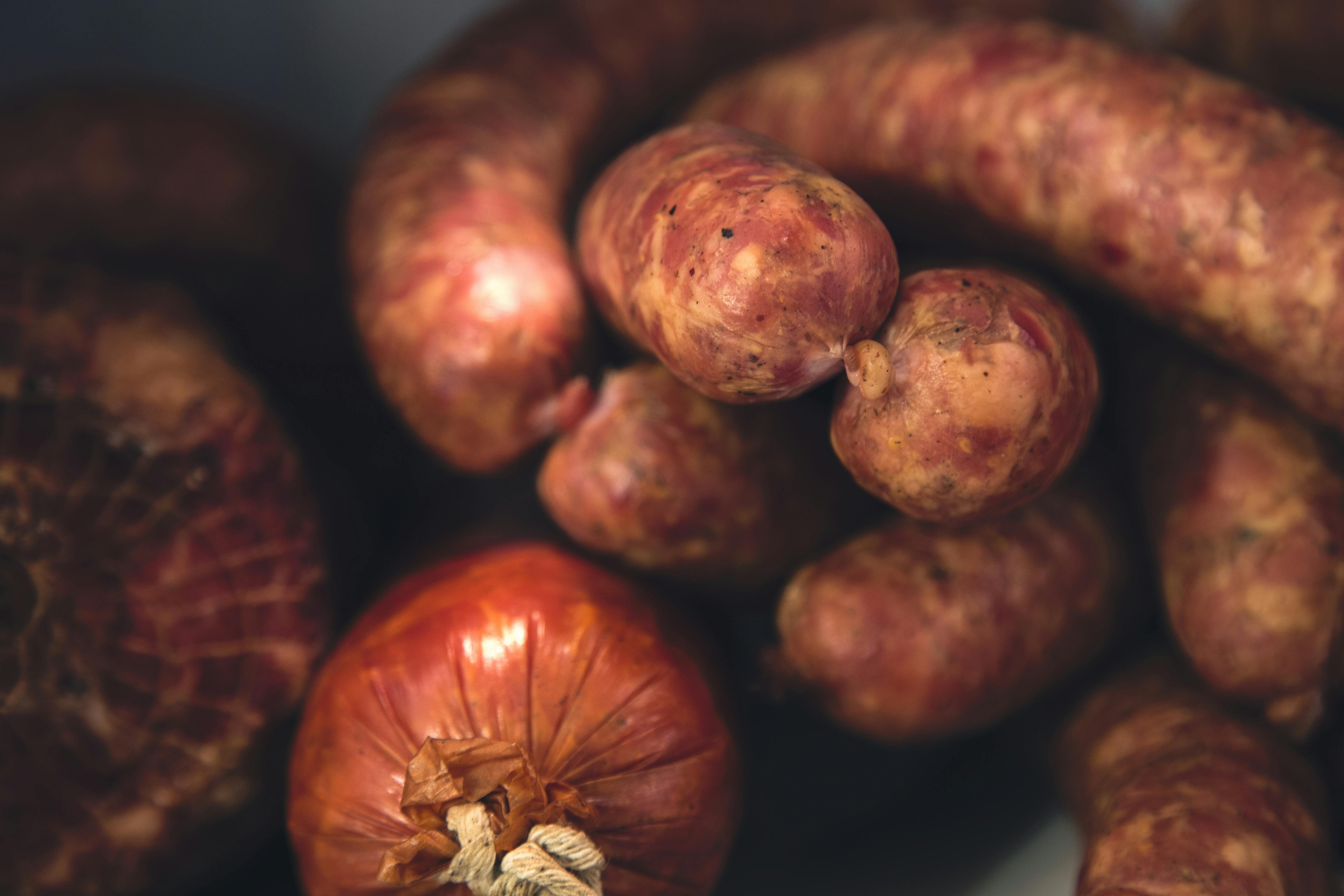
Cured and processed meats, such as bacon and ham, are bad for you for a number of reasons. They contain loads of salt, plenty of saturated fat, and can even increase your risk for heart disease, diabetes, and certain types of cancer.
However, processed meats might be particularly dangerous for people who have COPD, according to recent research. Multiple studies have found a link between COPD patients who eat more cured meats and worsened lung function and increased exacerbations and hospitalizations.
Here is a list of cured and processed meats you should avoid:
- Bacon
- Ham
- Corned Beef
- Sausage
- Spam
- Deli Meats
Alternatives to Processed Meats
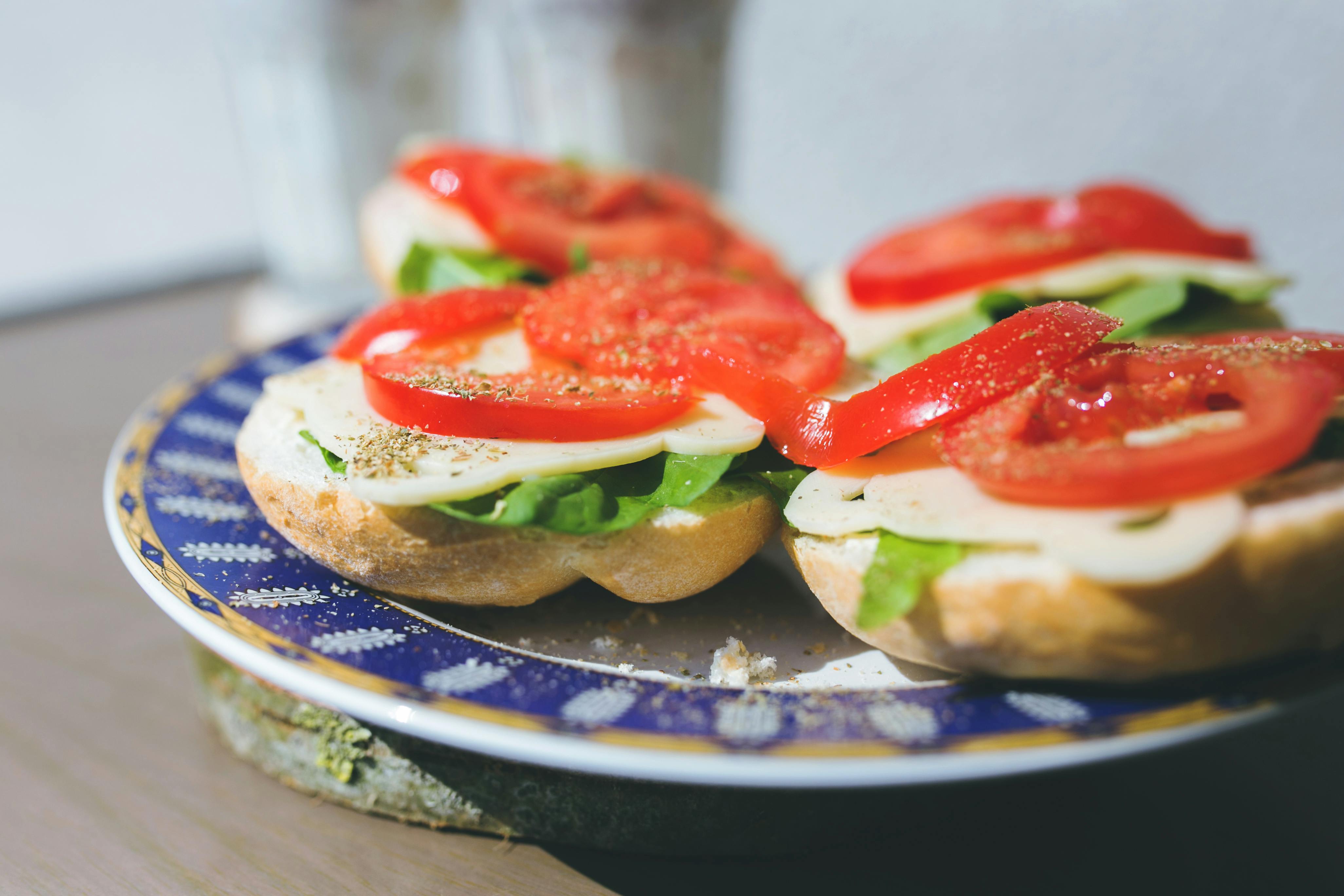
As an alternative to cured meats, try preparing fresh meats like shredded chicken or baked turkey to use in sandwiches and other dishes. For a quick and easy meat option, use packages of cooked shrimp or canned tuna, instead.
If you're used to packing a quick deli sandwich for lunch every day, you can reduce your processed meat intake by substituting some creative sandwich or salad options on some days, instead. You can experiment with different types of veggie sandwiches and wraps, tuna salad, egg sandwiches, and fruit sandwiches until you find an alternative you like.
Avoid Foods High in Salt

Image By David Dewitt: https://thecozycoffee.com/salt-in-coffee/
Getting too much salt in your diet is bad for your heart and also bad for your COPD. It can also make your body retain extra water, which can make it much more difficult and uncomfortable to breathe.
Even a single high-salt meal can cause bloating and make your COPD symptoms worse. Beware of broths (such as chicken and beef broths), frozen foods, and processed meats, which tend to contain an excessive amount of sodium.
Unfortunately, salt is hidden in a wide variety of everyday foods you wouldn't expect, which is why you should always check nutrition labels. Here are some common sources of excess sodium to avoid:
- Canned foods (including canned beans, vegetables, pastas, and soups)
- Frozen foods (including frozen TV dinners, frozen burritos, and frozen pizzas)
- Salted nuts
- Crackers and potato chips
- Many broths and soups
- Soy sauce and prepackaged marinades
- Instant puddings and baking mixes
- Condiments like mustard and ketchup (in large quantities)
- Pickled vegetables (like olives and pickles)
- Processed cheeses, cheese sauces, and spreads
- Many breads, biscuits, and bread mixes (like pancake mixes, waffle mixes, and Bisquick)
- Canned tomato sauces, salsas, and pasta sauces
- Prepackaged box mixes (e.g. pasta mixes, au gratin potatoes, flavored rice dishes, stuffing mixes, etc.)
Alternatives to High-Salt Foods
Luckily, you can usually find low-sodium versions of many of your favorite foods if you look. You can get low-sodium broths, no-salt-added canned goods, and a variety of salt substitutes at most grocery stores.
Cooking your own meals from scratch at home, however, is the best way to avoid getting too much salt in your diet. When you make your own broths, soups, beans, and raw veggies, you have full control over the ingredients at every step. This makes it much easier to limit the amounts of salt, fat, and other unhealthy ingredients in your meals.
If you often add extra table salt to your food when you eat, try substituting other ingredients and spices, instead. Even though salt is a simple, cheap, and easy flavoring for food, you can make your food much healthier and even more delicious by using salt-free alternatives.
There are hundreds of different spices you can experiment and get creative with, and most are very inexpensive to buy. Try different combinations of flavorings like garlic, onion, paprika, ginger, and other spices, and you'll find that your food doesn't even need the extra salt at all!
Avoid Caffeinated Drinks

Caffeinated, carbonated beverages cause bloating and gas, and are usually overloaded with sugar. They tend to be high in calories, high in salt, and have next to zero nutritional value.
Additionally, caffeine on its own can be problematic for people who suffer from COPD. It increases your heart rate, blood pressure, and breathing rate, all of which puts extra strain on your lungs.
Because of this, caffeine can make it more difficult to breathe and control COPD symptoms like wheezing and fatigue. Doctors recommend that people with the disease limit their caffeine intake as much as possible, especially if it causes their symptoms to get worse.
Alternatives to Caffeinated Drinks

If you're a soda, coffee, or caffeine addict, it can be difficult to quit cold turkey. Caffeine can have very unpleasant withdrawal symptoms, too, including irritability, anxiety, headaches, and fatigue.
It's often easier to cut down or eliminate caffeinated drinks when you do it gradually and replace them with healthier, non-caffeinated alternatives. Try cutting down on your caffeine intake by drinking one less cup per day or per week, that way you have time to adjust and build a healthier habit in the meantime.
Here are some healthy alternatives to caffeinated drinks:
- Fruit- and herb-infused water
- Decaffeinated coffee
- Decaffeinated tea
- Green juices
- Lemon water
- Low-sugar fruit juices (in moderation, ideally with pulp, or diluted with soda water)
Avoid Fried Foods

Despite being a universal favorite, fried foods are some of the most unhealthy foods you can eat. They are chock full empty calories and loaded with large amounts of added oil and fat.
Eating fried foods is bad for COPD because it can give you gas, make you bloated, and make it even more difficult and uncomfortable to breathe. They are also extremely calorie-dense and can make it more difficult to stay at a healthy weight.
You should try to cut fried foods out of your diet as much as possible to stay healthy and reduce your likelihood of experiencing worsened COPD symptoms. Instead, choose healthier baked and grilled options that are lower in fat and easier on your digestive tract.
Substitutes for Fried Foods
The best way to cut fried foods out of your diet is to avoid eating out at fast food restaurants and prepare most of your meals at home. If you do eat out, look for healthier baked or grilled menu items or opt for a light soup or salad instead.
It can be difficult to avoid fried foods like french fries and fried chicken if you're not prepared and don't have other substitutes ready. But you get a little creative, you can always find a healthier and equally delicious way to prepare the same foods that you love to eat fried.
Here are some healthier alternatives to substitute for fried foods in your diet:
Substitute fried meats and veggies for oven-baked, grilled, or steamed versions. This lowers the amount of calories and fat makes them less likely to cause stomach discomfort.
If you're addicted to fries and just can't give them up, try making your own homemade baked french fries from fresh potatoes in your oven at home. You can make them with much less salt and fat than the deep-fried versions at fast food restaurants have, or even use sweet potatoes for extra nutrients.
Avoid Sugary Foods

Sugary foods are difficult to stay away from, but it's worth putting in the effort to cut them out of your diet. Sugars are just empty calories with no real nutritional value, and eating a lot of sugary foods puts you at a greater risk for obesity, diabetes, and heart disease.
It's important to be aware that most processed and prepackaged foods contain a lot of added sugar, even if they aren't foods that you'd think of as being “sweet.” This includes most of the breads, boxed dinners, canned foods, fruit preserves and sauces you can find at the grocery store.
You should also look out for foods labeled as “low-fat” or “gluten-free,” because they are often no more nutritious than the regular version. Stripping the fat or gluten out of a food makes it bland and tasteless, and manufacturers often make up for this by loading their low-fat and gluten-free products with lots of added sugar.
To avoid all of these disguised sources of sugar, always check the nutritional label on the foods you buy. Avoid buying frozen, canned, and processed foods as much as possible and prepare your meals at home, instead.
Sugars are also a major source of refined carbohydrates, which put extra strain on your lungs an make COPD symptoms worse. It's important for people with the disease to limit carbohydrates in their diet, especially refined carbohydrates like sugar, white breads, and pastas.
Here are some common sources of sugar you should avoid:
- Refined carbohydrates (e.g. white breads, pastas, and crackers)
- Store-bought jellies, yogurt, sauces, and dressings
- Store-bought canned pasta sauces
- Breakfast cereals, flavored oatmeal, granola
- Canned soups and beans
- Sodas, fruit juices, sports drinks, coffee drinks, and flavored milk
- Canned fruits and dried fruits
- Many brands of nut butters
- Protein bars and cereal bars
Alternatives to Sugary Foods

Be wary of low-sugar foods that use low-calorie sugar substitutes like xylitol, mannitol, and sorbitol. These sugar alcohols are difficult to digest and cause many people to experience gas, bloating, and diarrhea when eaten in moderate amounts.
The best way to cut sugar out of your diet is to eliminate processed foods and prepare meals from whole ingredients at home. When you do your own cooking, you get to control all the ingredients that go into your food at every step, which makes it easy to cut down the amounts of salt, sugar, and other unhealthy additives.
Here are some common flavoring alternatives that are more nutritious than refined sugar:
- Honey
- Molasses
- Unsweetened applesauce
- Cinnamon
- Lemon or lime
- Fruits (e.g. use cranberries, lemons, blueberries, pureed bananas, etc. as substitutes for sugar in drinks, smoothies, muffins, and other dishes)
- Use milk or cream instead of sugar in your coffee or tea
- Dilute fruit juices with club soda to reduce calories and sugar
Avoid Alcohol (Especially Before Bed)
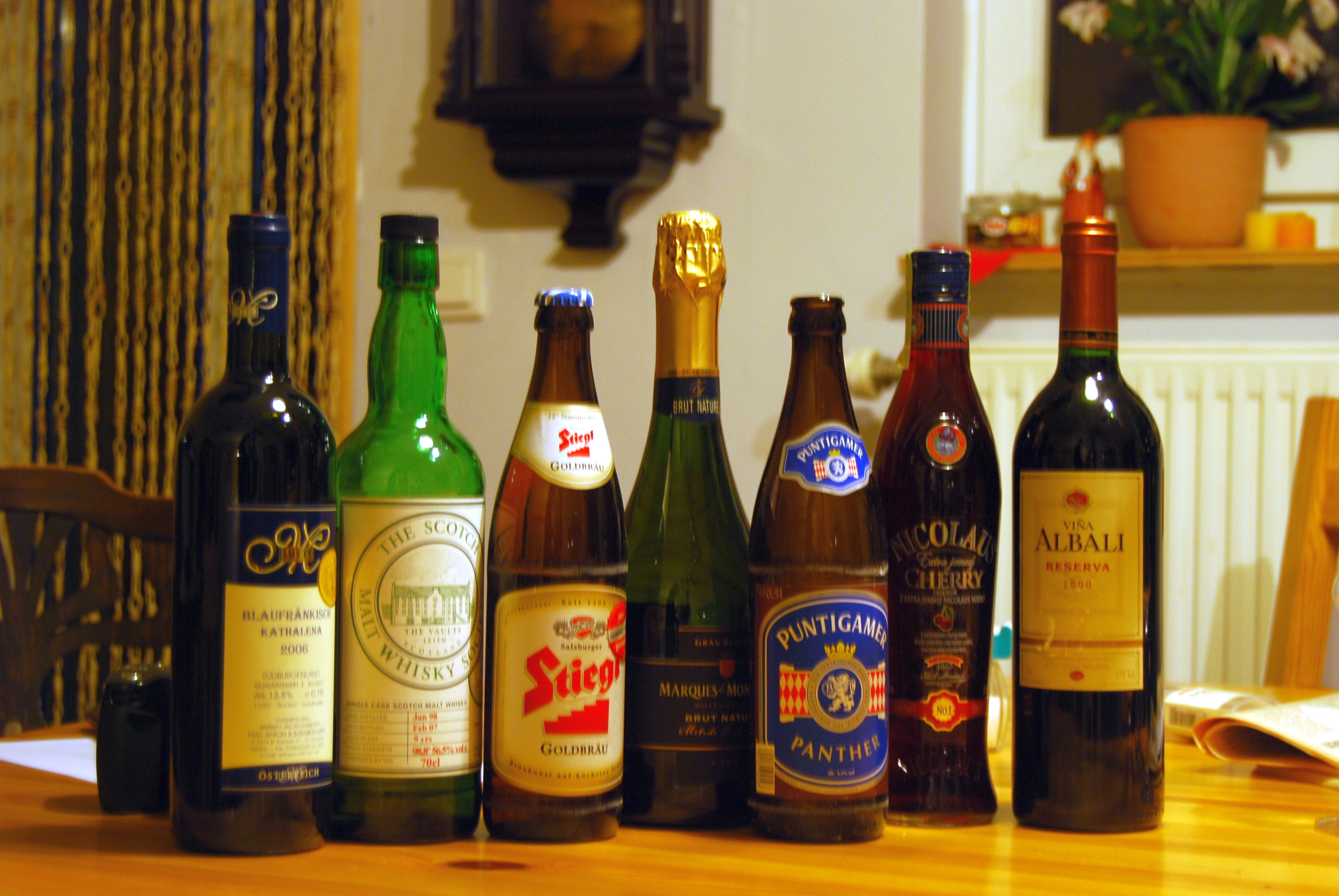
Alcohol is toxic on a basic level and is not very healthy for anyone to consume. However, if you have COPD, you should be especially careful about when and how much you drink alcoholic beverages.
You should try to limit your alcohol intake as much as possible, but especially at night. If you drink alcohol too close to bedtime, it can disrupt your sleep and even make it more difficult to breathe.
Because alcohol is a sedative, it can make the muscles in your throat to relax too much while you sleep. This narrows your airways and can cause them to collapse together, obstructing your ability to breathe.
Alternatives to Alcohol
If you're used to having a beer or a glass of wine before bed, try having it earlier in the day or replace it with a non-alcoholic alternative. A cup of water, decaffeinated tea, or a glass of warm milk are all soothing options that can help you relax without disrupting your breathing when you sleep.
Another option is to replace alcoholic drinks with non-alcoholic beer or virgin cocktails that mimic the taste. Here are some creative substitutes you can use use instead of liquor to make tasty mocktails at home:
- Vanilla extract instead of bourbon or scotch
- Almond extract instead of amaretto
- Apple juice, apple cider, or white grape juice instead of brandy
- Espresso, coffee syrup, or instant coffee instead of coffee liqueur
- Orange juice, apple juice, or pineapple juice instead of sherry
- Agave juice instead of tequila
- Apricot juice, peach juice, or pear juice instead of cognac
- Orange juice concentrate instead of curacao or triple sec
- Ginger ale or sparkling white grape juice instead of champagne
Foods You Might Need to Limit if You Have COPD

